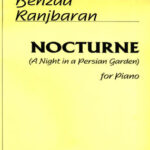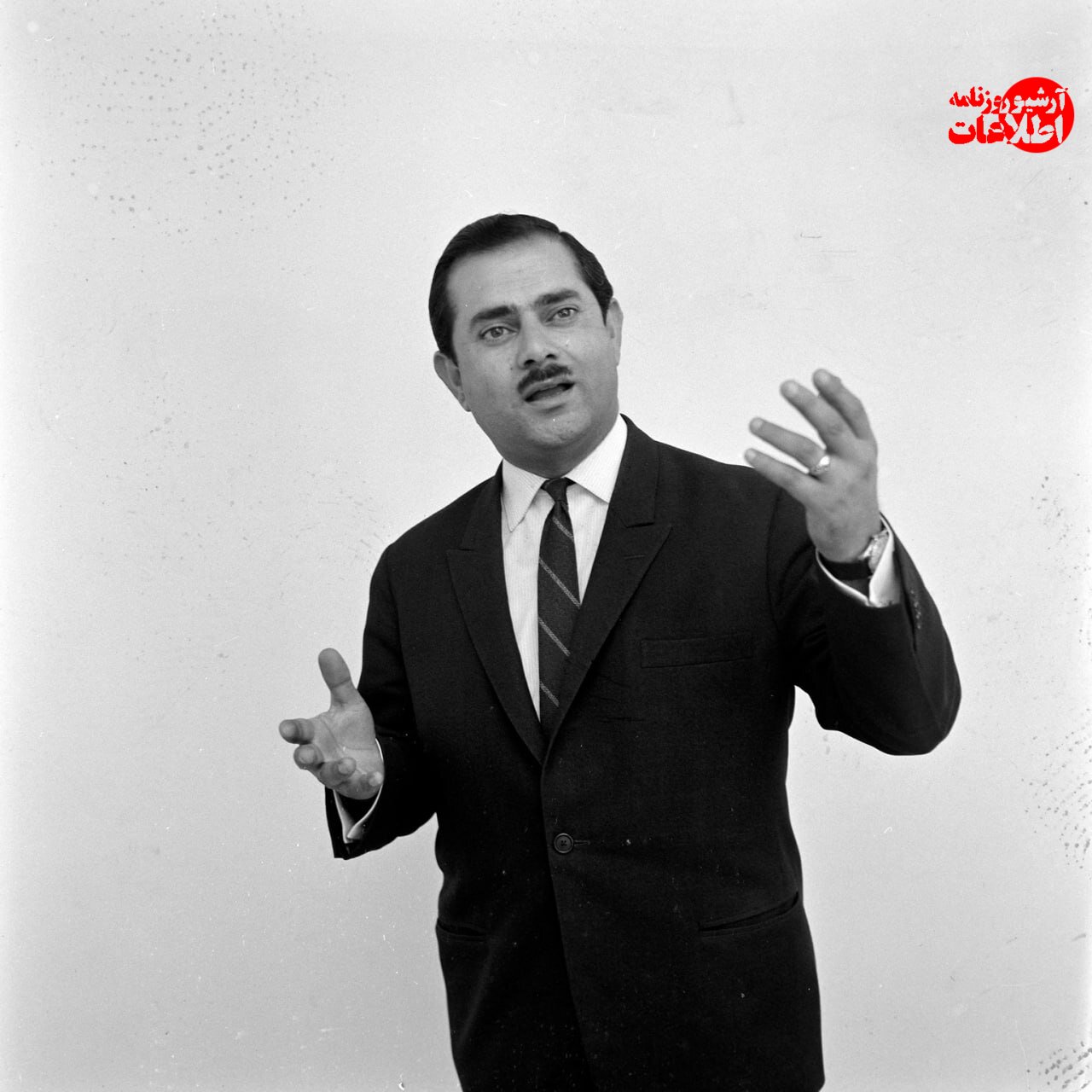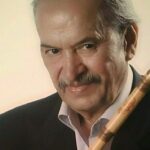
The 4th Iranian Festival of Music Websites and Weblogs was held in Niavaran Cultural Center, in Tehran, Iran on Feb. 28th, 2015. The initiator of the festival was Sajjad Pourghanad, Iranian music writer, researcher, founder of the festival and Persian setar and tar player.
At the begenning of the program, the presenter of the last day of the festival, Younes Mahmoudi, came on the stage to invite Saeed Yaghoobian (Persian tar), Dr. Peyman Nasehpour (Azerbaijani dayereh), and Shayan Yazdizadeh (tonbak) to perform the Azerbaijani art music pieces on the stage. After this music performance, the clip specially made for the 4th Festival was presented. Then Mahmoudi invited Seyyed Abbas Sajjadi, the CEO of Niavaran Cultural Center to deliver his speech on the Center’s activities and the 4th Festival.
After Sajjadi’s speech, the Choir of Arasbaran Culture-House came on the stage to perform some pieces of Handel, conducted by Serjik Mirzaeian. After the performance of the Choir, Dr. Mohammad Reza Azadehfar came on the stage to give a speech as an agent of the Juries of 4th Festival.
After Azadehfar’s speech, Peyman Soltani (Persian tar), Mehdi Emami (vocals), and Shaahin Mohajeri (tonbak) gave a Persian art music performance. Then Shahram Saremi (Iranian kamancheh player and artistic director of Arasbaran Culture-House) was invited to come on the stage to be appreciated for his help to the previous annuals of Iranian Festivals of Music Websites and Weblogs by dedicating to him the Statue and Letter of Recognition of the Festival.
Then a couple of musicians and music researchers were invited to come on the stage to deliver the awards of winners listed as follows:
1. Music website winner: MusiceIranian.ir run by Ebrahim Molaie
2. Music weblog winner: Neyrizmusic.blogfa.com by Saeed Mostafizi
Winners of Research Articles: 1. Nasim Ahmadian 2. Jafar Goudarzi 3. Shaahin Mohajeri – Soudeh Mofidi
Winners of Journalistic Articles: 1. Vahid Eftekhar Hosseini 2. Hossein Salimi
Winners of Notes on Music: 1. Babak Valipour 2. Ali Najafi Maleki 3. Ali Sharifi
Winners of Music Critiques: 1. Saeed Yaghoobian 2. Farhoud Safarzadeh 3. Mohammad Javad Sahafi – Meysam Pourtajrishi
Other Winners of Festival include: Kamyar Salavati, Farshad Tavakoli, Mehdi Forouzian, Mohammad Khalilian, and Bita Yari.
The final part of the 4th Festival was the performance of Arghanoun Flute Ensemble conducted by Ebrahim Nazari. The Arghanoun Flute Ensemble performed some pieces such as “Ninay-va-Bi Nay”, a Lorestani folk song and “Raghs-e-Dayereh” composed by Heshmat Sanjari.
The website of this Iranian Festival for Music Websites and Weblogs is: MusicFestival.ir. This time, the juries for this competitive festival were Mohsen Ghanebasiri (Iranian an epistemologist, chemist, author and theorist on economy, culture, arts (cybernetics) and management), Shahram Saremi (Iranian kamancheh player), Dr. Mohammad Reza Azadehfar, Dr. Pirooz Arjmand, and Dr. Narges Zaker Jafari. Beside the helps of Shahram Saremi, one of the other musicians who also supported this festival was Dr. Mohammad Sarir, Iranian composer and pianist.









